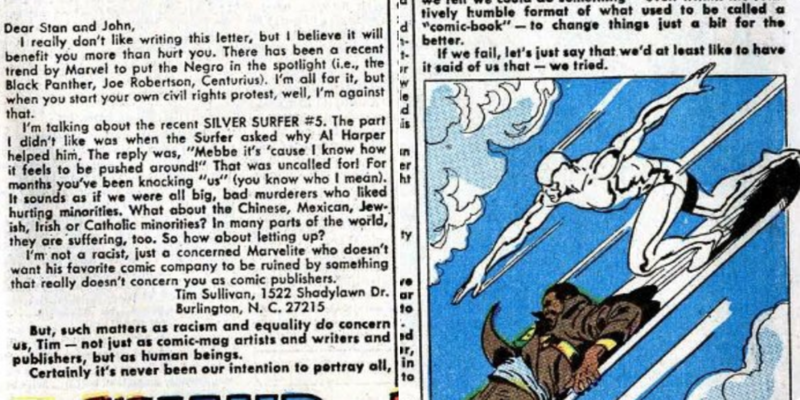Jill Pantozzi reminds us that “Marvel Has Been Ignoring Fans Telling Them to Stop Being So Progressive Since Forever.” Fan letters are a big part of comics culture since they get printed in the next issue, and in 1969 Stan Lee got a letter (from a Burlington, NC reader) that sounds like it could have been written yesterday. “… I’m not a racist, just a concerned Marvelite who doesn’t want his favorite comic company to be ruined by something that really doesn’t concern you as comic publishers.” (Not just racist, but classic concern troll!)
Marvel’s response is lovely:
But, such matters as racism and equality do concern us, Tim – not just as comic-mag artists and writers and publishers, but as human beings.
Certainly it’s never our intention to portray all, or even most, white Americans as hard-core bigots or screaming racists. Maybe it’s just that we think that many people in this land of the free have too long turned their backs or averted their eyes to the more unpleasant things that are going on every day. Maybe we felt we could do something – even within the relatively humble format of what used to be called a “comic-book” – to change things just a bit for the better.
If we fail, let’s just say that we’d at least like to have it said of us that – we tried.
Learn more of the story and get more context about politics in comics at Jill’s blog: Marvel Has Been Ignoring Fans Telling Them to Stop Being So Progressive Since Forever [The Nerdy Bird].


